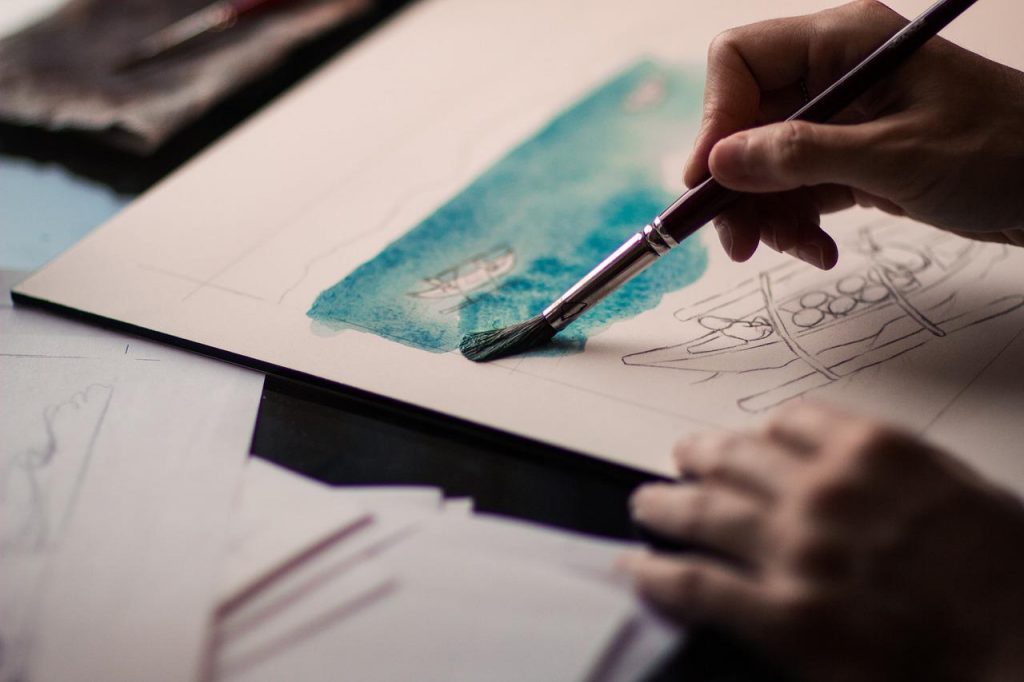Mentoring and the Modern Artist
When you choose to be an artist of any kind, you are choosing a career with no linear path and no transparent information on how to get from one level to the next. Traditional careers are challenging enough, but artists are people who are truly left wondering in the dark. Artists today need mentors more than ever. In the past, mentoring programs were called apprenticeships and even master artisans once depended on an experienced person to guide their personal and professional development.
Today, we don’t have an apprenticeship system for most artistic careers. Artists rely on a life mentor, life coach, or peer to peer mentor to learn key information about their careers and reach their goals. Tutoring and critiquing are two ways mentorship supports new artists. Tutoring helps artists hone their craft and reach the professional standards for their field. Critique can really help artists improve their work through feedback and learn how to take constructive criticism. In the arts, mentoring is crucial for learning how to navigate the road to success, which is never a straight line. Most artists who have ‘made it’ can point to atleast a few people who helped them learn their craft and get their work seen by industry gatekeepers. Artists’ personal development can also benefit from mentoring relationships. Someone pursuing a career in the arts needs thicker skin than the average person, due to the sheer amount of rejection they face on a daily basis. Even the most successful artists get more ‘no’s’ than the elusive ‘yes.’
With the apprenticeship system almost obsolete in the modern world, there is a lack of access to good mentors in the arts. In traditional fields like law, business, or medicine, mentors are more common. However, there are very few established mentoring programs for artists, and the ones that do exist are often incredibly competitive and difficult to get into. There are classes to improve the craft, but they are expensive and the teachers are either more business minded, choose select favorites to mentor, or are too spread thin to help everyone in their large classes. Life coaches and private tutors are even more expensive and are difficult to access for artists coming from middle and lower income backgrounds. Often, these industries are so cutthroat it is difficult to find someone who is willing to mentor and teach without charging huge fees. The artists a few levels above the newcomer are too focused on their own obstacles or frustrations. Many of the masters are famous, which makes it difficult to access their spheres of influence. They do tend to mentor younger artists, but only those with connections and fame themselves. And yet, reaching success in the arts is almost impossible without an experienced hand guiding the budding artist through the murky and tricky path to success. So what is an artist without family money and connections to do?
Finding a mentor in a more traditional way might prove difficult in artistic careers, since there is often no official workplace and much of the daily work of an artist is solitary. This is where educational technology companies like You2Mentor will come in handy. Modern times may have done away with apprenticeships, but we do have the internet. With an internet connection, individuals have instant access to people all over the world, in all different time zones. Ed tech and virtual mentoring may help artists access more mentorship opportunities than ever before. Instead of being lucky to find a mentor at all, artists may be able to connect with multiple mentors and be exposed to multiple perspectives on their career paths and the obstacles that come with it. This will be especially helpful to artists who do not come from wealthy families or have connections. When the playing field for success is leveled in the arts, the world will benefit from access to better art and diverse creative perspectives.






